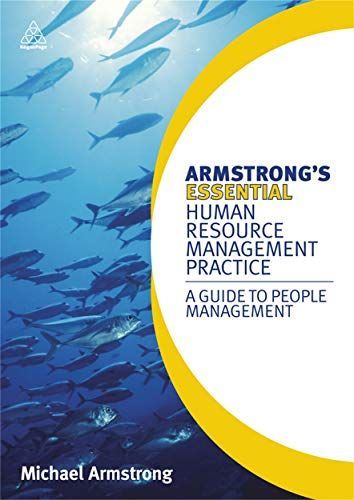
Armstrong's Essential Human Resource Management Practice A Guide to People Management
HR managers have to serve the interests of their organizations, comprising employees, customers and the community at large as well as shareholders, or, in the public or voluntary sectors, those who have the ultimate responsibility for what the organization does. It also means exercising social responsibility, being concerned for the interests (well-being) of employees and acting ethically with regard to the needs of people in the organization and the community. Armstrong's Essential Human Resource Management Practice provides a complete overview of the practices and processes fundamental to managing people. The text provides a thorough introduction to the core areas of HR including: people resourcing, performance management, learning and development and rewarding people. It also examines the contribution of HR to organizational aims and objectives and how it is integrated within the business. The book is accompanied by online resources for both lecturers and students and adopts an increased focus on employee engagement, a concept which is becoming increasingly prominent in people management, but which is often presented as a mantra without being properly understood; this is examined in detail with reference to recent research. Michael Armstrong's original Handbook of Human Resource Management is the classic text for all those studying HR or who are entering the profession for the first time. In this new title Michael Armstrong provides a condensed text which has been rewritten with the non-HR student or professional in mind, describing and evaluating key HRM concepts such as: HRM itself; strategic HRM; the resource-based view; the choice between best practice and best fit; human capital measurement; motivation theory; emotional intelligence; the flexible firm; the learning organization; and financial rewards.